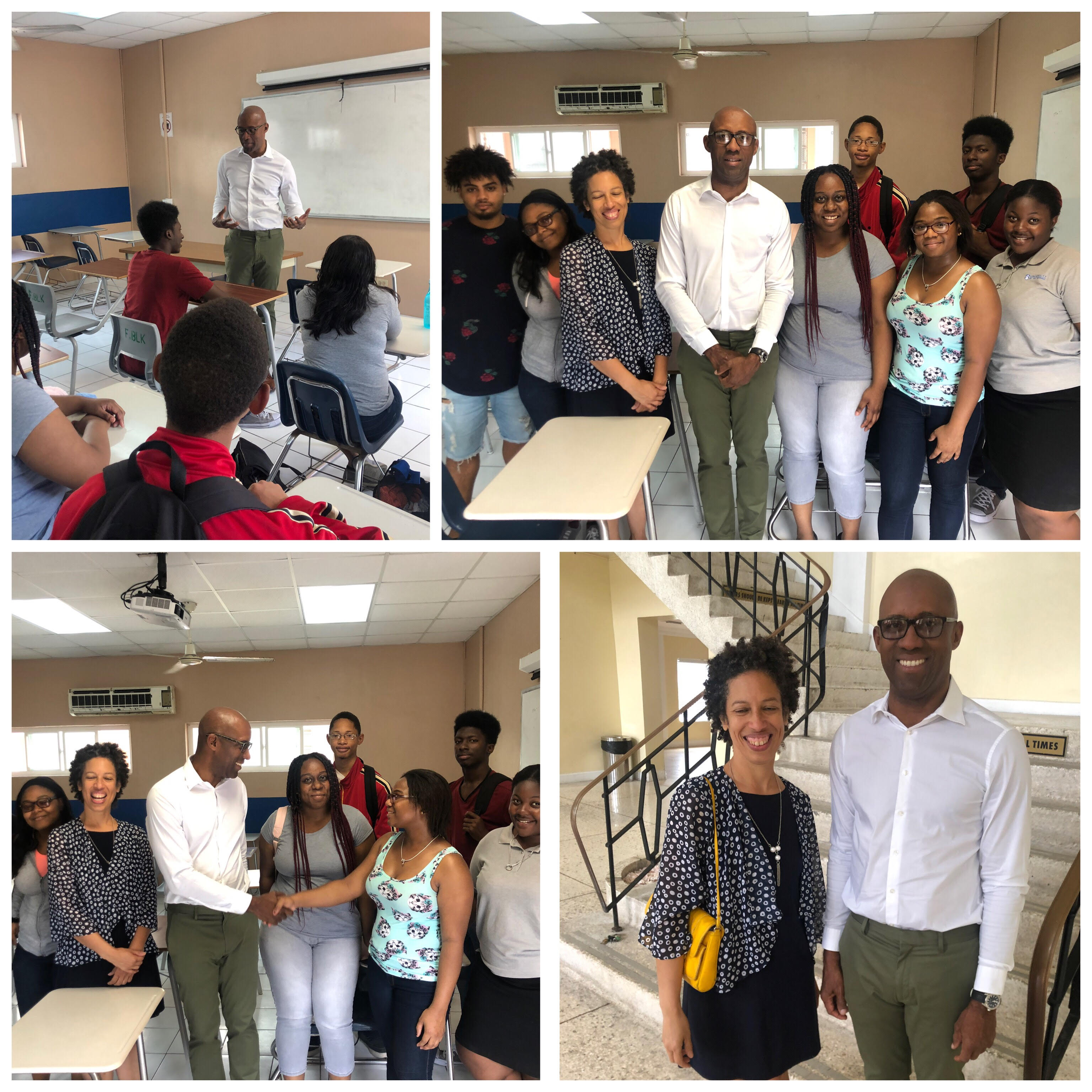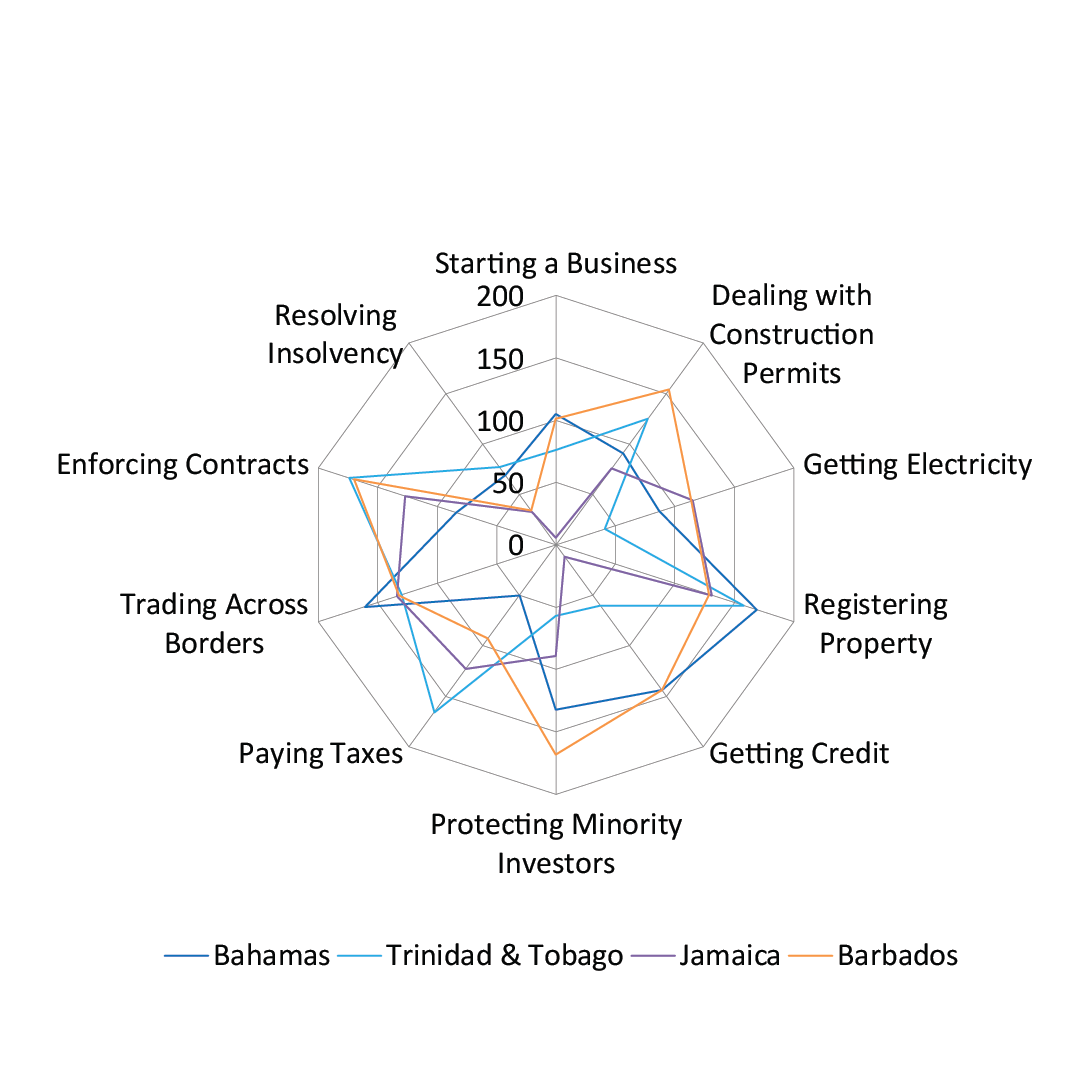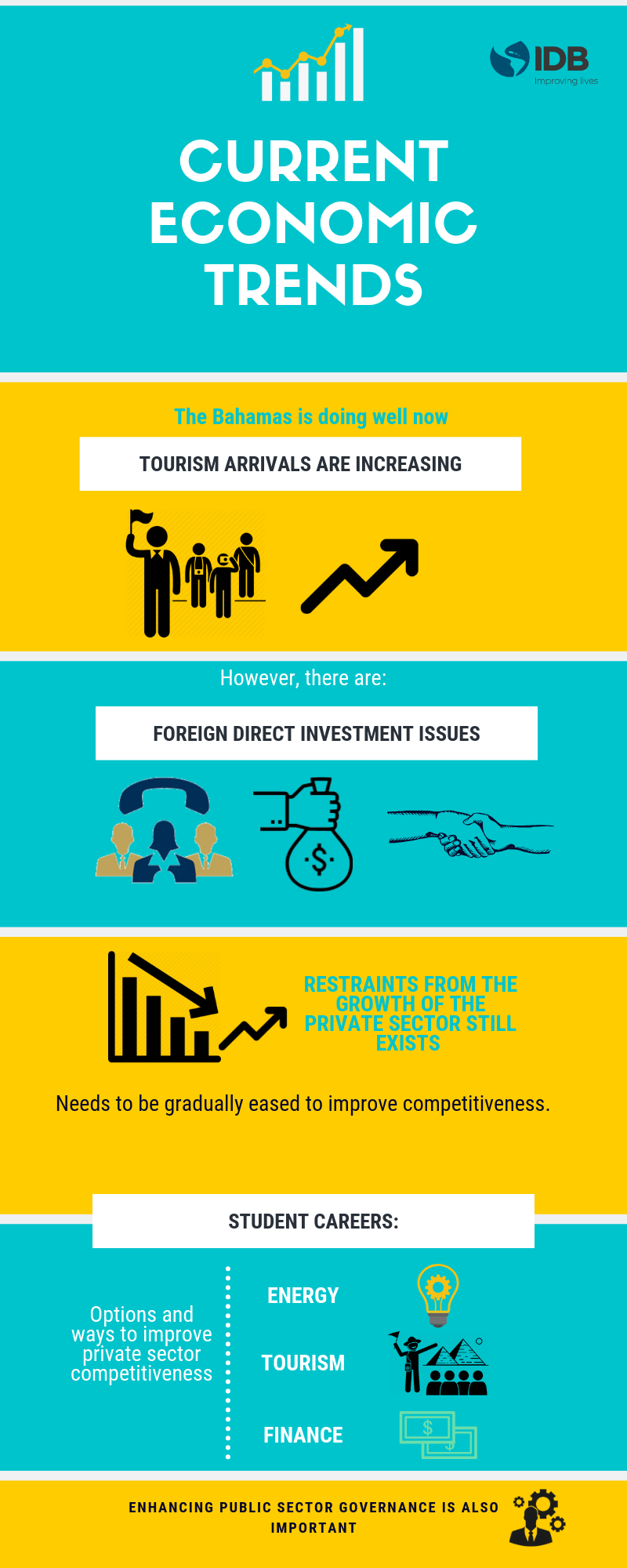Imagine a community without trending conversations around the new world of work, artificial intelligence, and disruptive technology? One word – Obsolete.
In an effort to spark dialogue and new perspectives, Dr. Allan Wright, the Inter-American Development Bank’s (IDB) economist in Nassau, recently gave a presentation at The University of The Bahamas (UB) on the economic climate of The Bahamas in relation to the Caribbean region as well as current and future societal trends linked to the impact of technological changes.
A discussion on the role of automation in the economy of the future was a prevailing theme during the discussion. “This will help young people to make wise career decisions in that they will be living and working in a labour market that will change rapidly and consistently.” Dr. Wright shared his insights on how young people can prepare themselves to take advantage of the opportunities that will come with an increase in automation in the labour force, specifically on how the understanding of the global economic climate provides knowledge on the future of work and ways in which that will change.
Natasha Turnquest, Adjunct Professor at the School of Social Sciences at the University of The Bahamas challenges her students to be proactive and assertive. Professor Turnquest emphasized that, “These traits are going to be critical to the success of students in the future.” With the goal of engaging her students though interactive sessions, she indicated that Dr. Wright’s presentation on the role of automation in the economies of the future was meant to inspire and be instructive. She specifically asked that Dr. Wright share his insights of his professional experience working in an international organization that engages daily with the Government and the people of The Bahamas to promote the nation’s economic development.
Professor Turnquest noted, “These young people will be living and working in a labour market that will be radically transformed during the next 20 years.” She added, “We discussed the future of work and ways in which that will change, and how they can best prepare themselves to take advantage of the opportunities that will come with an increase in automation in the labour force.”

As a case study, Professor Turnquest’s class watched How the Economy Works, a documentary developed by the billionaire hedge-fund owner Ray Dalio. In this documentary presentation, Dalio strips down the complexities of the economy into fundamental components and speaks to the inter-connectivity of facets that comprise a modern “free market” economy. It is critical for anyone, especially young people, to understand how the economy works. Why? If you comprehend at the most fundamental level, the factors that drive the economy and understand its true nature, you can then operate in that environment to your benefit.
Ervinae Bain, a Junior Hospitality Management major at the University of The Bahamas, stated that Dr. Wright’s presentation was eye-opening to those unaware of the current financial state of Bahamas: “Our class enjoyed an insightful conversation about the current state of the economy, and how each of our degrees can be used to build a more sustainable Bahamas.”
Professor Turnquest expressed satisfaction that the overall student experience throughout this semester was memorable. “Actually, being able to see the progression of a new mindset developing in many of the students over the course of the semester was encouraging. “I often challenge the students to think critically and to consider the deeper issues that actually drive the processes we examined this semester,”
Is the educational system effectively preparing Bahamians for the workplace of the future?
The historical development and roles of political and economic institutions in the Caribbean are explored in IDB’s recently launched publication, Nurturing Institutions for a Resilient Caribbean. The main objective of Nurturing Institutions is identifying positive regional and national-level trends as well as institutional areas in need of improvement that could facilitate a sustainable development path in six Caribbean member nations of the IDB. The Caribbean region’s institutional reality is assessed in terms of best international practices.
The Bahamas does better than the comparator regions, including countries in the Organization for Economic Cooperation and Development (OECD). The Bahamas has the second highest share of population between 25 and 65 years old with tertiary education among these six Caribbean countries (The Bahamas, Barbados, Jamaica, Guyana, Suriname and Trinidad and Tobago). However, improvements need to be made at the primary and secondary levels.
Overall, effective institutions are critical for continuing growth and development. The institutional performance of The Bahamas remains in line with international standards, although a few opportunities for improvement exist.”
For additional analysis on the state of education in The Bahamas, please visit our publication.

Source: 2016 World Development Indicators
How can The Bahamas enhance its global competitiveness?
Structural bottlenecks are critical to lift medium-term growth, including the advancing of energy sector reforms; reducing the administrative burden on businesses; and reducing skill gaps in the labor market.

Current economic trends show that while The Bahamas is doing well now, tourism arrivals are increasing, as well as foreign direct investment in large private capital projects continue to drive growth in the reals sector. Structural bottlenecks are restraining the private sector and long-term growth levels by dampening the nation’s competitiveness. As the students consider options for their careers, they can look at ways to improve private sector competitiveness in areas of energy, tourism and the financial sector. However, enhancing public sector governance is quite as easily important.
Encouraging students to pursue careers in public administration, in order to further develop the talent pool in Government, are also critically important. “The strengthening of public financial management is vital to bringing greater credibility to the level of fiscal governance throughout the country,” stated Dr. Allan Wright.
Professor Turnquest concluded her class with this comment, “There are many challenges before The Bahamas as it relates to income inequality, and the cost of living. At the same time, there are many opportunities for radical transformation for the benefit of Bahamians if there is visionary leadership.”



Leave a Reply